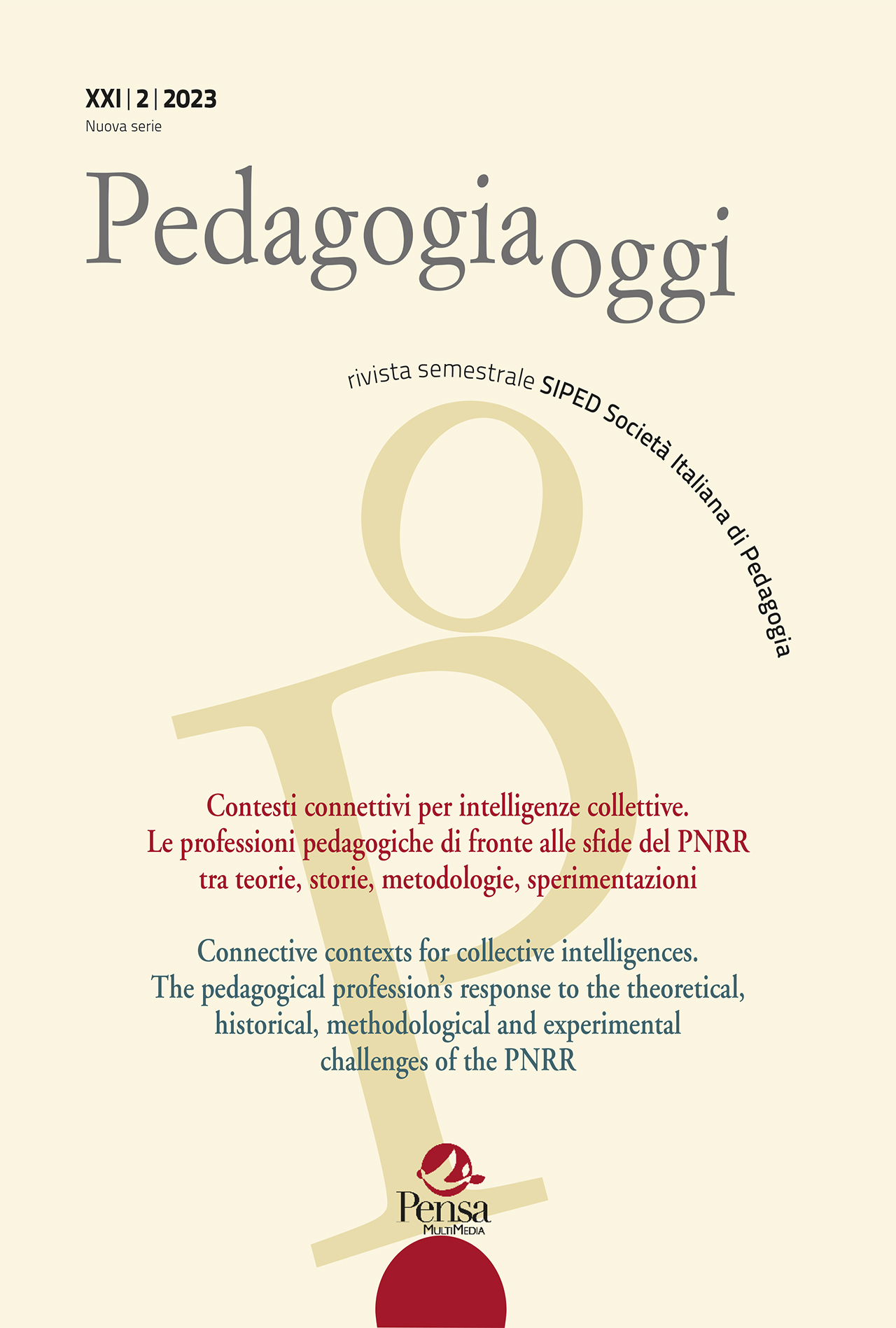Five keys to the future and another one. Collective intelligence to build sustainable development
DOI:
https://doi.org/10.7346/PO-022023-26Keywords:
Collective intelligence, Futures, Education, Sustainable development, PedagogyAbstract
In recent decades, education has been increasingly involved in the transition processes toward sustainability. To cope with the changes of this transition, we need new models of learning and thinking that are more future-oriented and able to bring together minds and intelligence available in society. Starting from an analysis of how Futures Literacy can provide a new interpretation of the relationship between education and sustainability, the contribution aims to reflect on the models of thinking needed to build more sustainable futures. In particular, the essay wants to reconstruct the reasons why collective intelligence can be considered the sixth ‘key’ in addition to the five identified by Gardner (disciplinary, synthetic, creative, respectful, ethical) both to face the future and to be able to co-construct and transform it. The enhancement of collective intelligence in education for sustainable development can encourage the creation of pedagogical processes for learning to become with the world. This is a paradigm shift that asks pedagogy, more than other sciences, to overcome both anthropocentric logic and Capitalocene models of development in order to embrace the values of cooperation, dialogue, interdependence, and co-existence.




